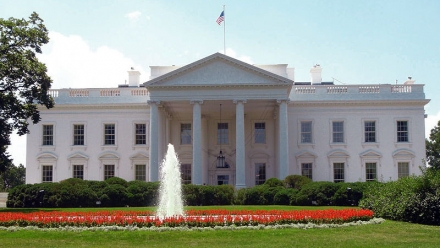House Passes USA Freedom Act to Curb NSA Surveillance
May 26, 2014
Late last week the House overwhelmingly passed legislation that is intended to bring an end to the National Security Agency’s bulk phone records program. The USA Freedom Act is designed to restrict the federal government’s ability to collect records about citizens in bulk, a program that had sparked debate regarding privacy and civil liberties. The House voted 303-to-121 in support of the USA Freedom Act, which could signal a change in how both political parties view the power of the NSA.
 Last year, the House was divided regarding a vote about the NSA after leaks about its bulk phone records program emerged. However, this time around there was major support for the change.
Last year, the House was divided regarding a vote about the NSA after leaks about its bulk phone records program emerged. However, this time around there was major support for the change.
“But there were limits to any idea of a new season of accord in the capital,” reports The New York Times. “A Senate panel voted to allow President Obama to create a plan to close the prison at Guantánamo Bay, Cuba, and to reduce military forces, even as the House passed a defense policy bill that would continue to bar the closing of the prison and resisted the administration’s proposed reductions to Pentagon spending on personnel, weapons and benefits.”
“People are a lot more comfortable with a government that is not storing all this metadata,” said Speaker John Boehner of Ohio. “On this issue, the administration, their position and the position of House Republicans frankly was pretty close.”
While the USA Freedom Act was initially designed to curb NSA surveillance, some tech and privacy groups have recently withdrawn their support after the bill was reportedly “watered down.”
“The NSA might still be watching us,” suggested Representative Jim Sensenbrenner (R-Wisconsin), “but now we can be watching them.” After Thursday’s vote, Sensenbrenner, the bill’s author, also admitted that he wished it more “closely resembled” the version that he first introduced.
“What is being considered is not the bill that was marked up by the House Judiciary Committee,” said Representative Zoe Lofgren (D-California) said on the House floor the day before the vote. “Certain key elements of this bill were changed. I think it’s ironic that a bill that was intended to increase transparency was secretly changed between the Committee markup and floor consideration.”
“One of the changes that riled Silicon Valley giants and privacy groups alike was the broad definition of database searching,” reports ZDNet. “Under the act as it stands, a search inquiry is allowed if it is a ‘discrete term,’ such as a query that would identify a ‘person, entity, account, address, or device.’ Previously, the act limited the searches to a ‘person, entity, or account,’ which was seen as more specific and restrictive for intelligence agencies.”
A coalition of tech companies, including Google, Facebook, Microsoft and Twitter, expressed concerns that certain definitions could lead to dangerous loopholes. “The coalition said it would not support the Freedom Act as it currently stands,” added ZDNet, also citing the Electronic Frontier Foundation, the Center for Democracy & Technology, and Amnesty International as groups concerned with the latest version of the bill.
“The bill will now move to the Senate, despite the eleventh-hour changes to the House bill, where sources suggest it will be pulled apart and initial provisions designed to restore trust in the U.S. intelligence community will be rewritten and added.”

No Comments Yet
You can be the first to comment!
Sorry, comments for this entry are closed at this time.